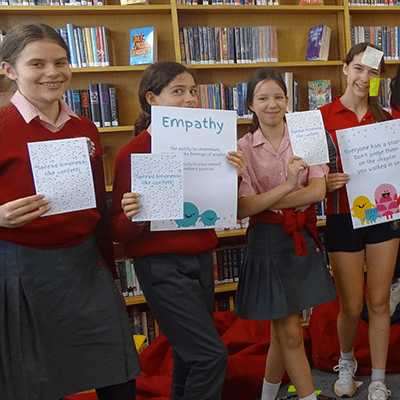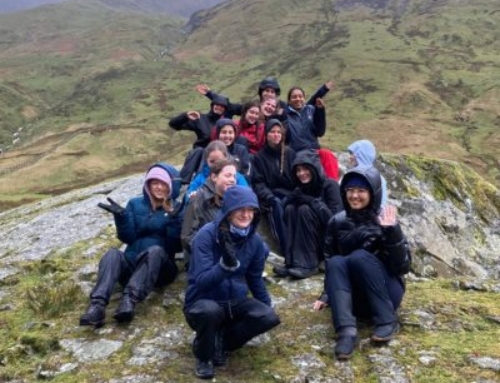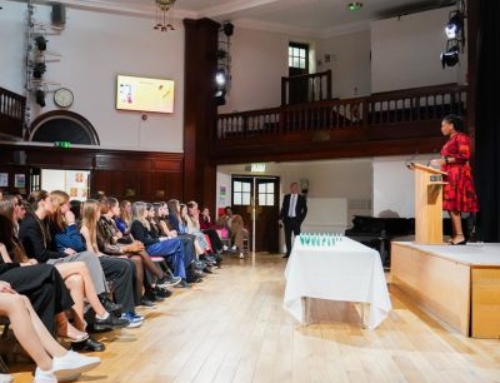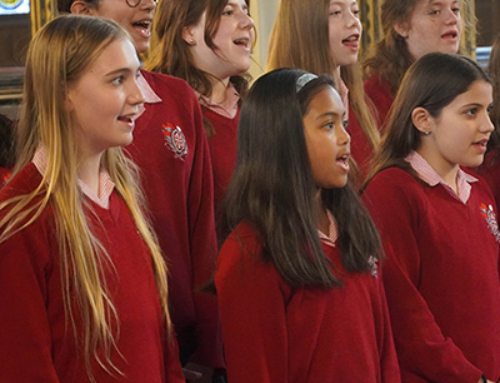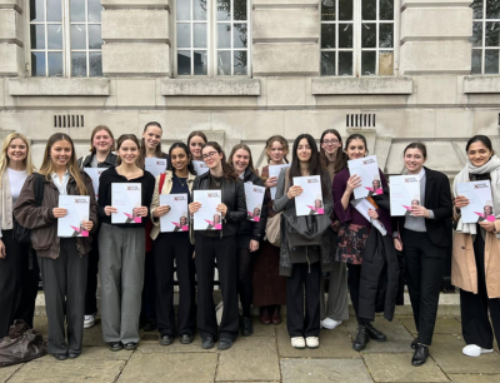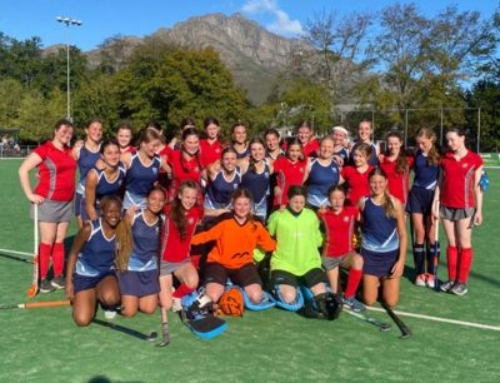“Show of hands, who’s heard of Empathy Day?” An awkward silence followed; students shifted in their seats and teachers looked apprehensive – the assembly, they thought, had not started well. Undeterred by the lack of hands, Miss Lawrence smiled and continued to unveil the plans for the week.
Empathy, she explained, can be defined as “being able to experience and understand other people’s feelings and points of view”.
Like our students and staff, I suspect that Empathy Day (8th June) is not yet on the radar of our wider community – so let me elucidate you. Empathy Day was founded in 2017 as part of Empathy Lab’s mission “to inspire the rising generation and to drive a new empathy movement” (Empathy Lab). It is in many ways the younger cousin of World Book Day, and this year FHS was ready to join in.
We began the week with an assembly during which we talked about: the importance of being empathetic and disagreeing well when living in a pluralistic society; how some of us will find empathy comes naturally but others might be thinkers rather than feelers, so we need to be gracious with each other if our first reactions unintentionally fall short; and that neuroscience has shown us that empathy is something that can be developed. There were three practices that our students might engage with during the week to build those neuropathways.
- Listen actively. The wonderful Library volunteers posted questions around the school that students were encouraged to ask each other in a spare moment – maybe while waiting to go into a classroom – and then carefully listen to their friends’ answer. Questions like: ‘if you could read one book again for the very first time, what would it be?’. We also had a visit from Born to be Awesome author Samantha Babooram, who ran an Empathy Workshop about listening well and showing kindness.
- Be curious. There are so many great events and societies at FHS where our students can learn about other cultures and ask questions, so we encouraged them to be curious and get involved. Particularly highlighted were the upcoming Refugee Week (19th-25th June), Windrush Day (22nd June), and School Diversity Week (26th -30th June).
- Read Books. Books are amazing! Some books allow us to observe different ways of approaching a situation or problem from outside, which we can then apply what we see to our own lives. Maybe we’ve had a falling out with a friend, and a book can help us understand a different perspective and work out how to reconcile. Novels in the first person enable us to journey with the character and feel their emotions as we go, helping us to connect with our own feelings, process our fears, and to experience the joys of life. Stories, of course, can be found in other places too – films, art, music, games – but there is nothing quite like a book for building empathy neuropathways. Naturally, we had a display in the Library showcasing this year’s Empathy Collection.
Hopefully, some new seeds of understanding and compassion have been sown, while others have grown and flourish.
Miss Lawrence, School Librarian


